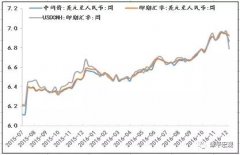英国历史人物介绍:威廉莎士比亚(双语)
威廉·莎士比亚简介
威廉·莎士比亚(William Shakespeare,1564-1616),英国文学史上最杰出的戏剧家,也是西方文艺史上最杰出的作家之一,全世界最卓越的文学家之一。他流传下来的作品包括38部戏剧、154首十四行诗、两首长叙事诗和其他诗歌。戏剧创作是莎士比亚主要的成就。
正如许多作家一样,他的创作也分为三个阶段:前期是浪漫的、激情的、乐观的;中期则表现为现实的、深沉的、忧愤的;到了晚年,又带上对来世彼岸的神秘性思考,表现为悠远的、宗教的、虚无的。

William Shakespeare was an English poet and playwright, widely regarded as the greatest writer in the English language and the world's pre-eminent dramatist. He is often called England's national poet and the "Bard of Avon".
His extant works, including some collaborations, consist of about 38 plays, 154 sonnets, two long narrative poems, and a few other verses. His plays have been translated into every major living language and are performed more often than those of any other playwright.
Shakespeare was a respected poet and playwright in his own day, but his reputation did not rise to its present heights until the 19th century. The Romantics, in particular, acclaimed Shakespeare's genius, and the Victorians worshipped Shakespeare with a reverence that George Bernard Shaw called "bardolatry".
In the 20th century, his work was repeatedly adopted and rediscovered by new movements in scholarship and performance. His plays remain highly popular today and are constantly studied, performed, and reinterpreted in diverse cultural and political contexts throughout the world.
莎士比亚在世时被尊为诗人和剧作家,但直到19世纪他的声望才达到今日的高度。并在20世纪盛名传至亚洲,非洲,拉丁美洲三大洲。浪漫主义时期赞颂莎士比亚的才华,维多利亚时代像英雄一样地尊敬他,被萧伯纳称为莎士比亚崇拜。20世纪,他的作品常常被新学术运动改编并重新发现价值。至今他的作品直至今日依旧广受欢迎,在全球以不同文化和政治形式演出和诠释。
代表作品:
四大悲剧:《哈姆雷特》(Hamlet)、《奥赛罗》(Othello)、《麦克白》(Macbeth)、《李尔王》(King Lear)。
四大喜剧:《威尼斯商人》(The Merchant of venice)、《仲夏夜之梦》(A Midsummer Night's Dream)、《皆大欢喜》(As You Like It)、《第十二夜》(Twelfth Night)。
历史剧: 《亨利四世》、《亨利五世》、《亨利六世》、《亨利八世》、《约翰王》、《理查二世》、《理查三世》。
十四行诗:莎士比亚十四行诗大约创作于1590年至1598年之间,其诗作的结构技巧和语言技巧都很高,几乎每首诗都有独立的审美价值。莎士比亚在运用这个诗体时,极为得心应手,主要表现为语汇丰富、用词洗练、比喻新颖、结构巧妙、音调铿锵悦耳。而其最擅长的是最后两行诗,往往构思奇诡,语出惊人,既是全诗点睛之作,又自成一联警语格言。在英国乃至世界十四行诗的创作中,莎士比亚十四行诗是一座高峰,当得起空前绝后的美称。共154首。
莎翁名言:
Things base and vile, holding no quantity, love can transpose to from and dignity: love looks not with the eyes, but with mind. (A Midsummer Night’s Dream 1.1)
卑贱和劣行在爱情看来都不算数,都可以被转化成美满和庄严:爱情不用眼睛辨别,而是用心灵来判断/爱用的不是眼睛,而是心。——《仲夏夜之梦》
Love is blind and lovers cannot see the pretty follies that themselves commit. (A Merchant of Venice 2.6)
爱情是盲目的,恋人们看不到自己做的傻事。——《威尼斯商人》
All that glisters is not gold. (A Merchant of Venice 2.7)
闪光的并不都是金子。——《威尼斯商人》
What’s in a name? That which we call a rose by any other word would smell as sweet. (Romeo and Juliet 2.2)
名字中有什么呢?把玫瑰叫成别的名字,它还是一样的芬芳。/名称有什么关系呢?玫瑰不叫玫瑰,依然芳香如故。——《罗密欧与朱丽叶》
This above all: to thine self be true. (Hamlet 1.3)
最重要的是,你必须对自己忠实。——《哈姆雷特》
Brevity is the soul of wit. (Hamlet 2.2)
简洁是智慧的灵魂,冗长是肤浅的藻饰。/言贵简洁。——《哈姆雷特》
There is nothing either good or bad, but thinking makes it so. (Hamlet 2.2)
世上之事物本无善恶之分,思想使然。/没有什么事是好的或坏的,但思想却使其中有所不同。——《哈姆雷特》
To be or not to be: that is a question. (Hamlet 3.1)
生存还是毁灭,这是个值得考虑的问题。——《哈姆雷特》
Love’s not love when it is mingled with regards that stands aloof from th’entire point. (King Lear 1.1)
爱情里面要是搀杂了和它本身无关的算计,那就不是真的爱情。——《李尔王》
Cowards die many times before their deaths; the valiant never taste of death but once. (Julius Caesar 2.2)
懦夫在未死以前就已经死了好多次;勇士一生只死一次,在一切怪事中,人们的贪生怕死就是一件最奇怪的事情。——《凯撒大帝》/《英雄叛国记》
Men’s judgments are a parcel of their fortunes; and things outward do draw the inward quality after them, to suffer all alike. (Antony and Cleopatra 3.13)
智慧是命运的一部分,一个人所遭遇的外界环境是会影响他的头脑的。——《安东尼和克里奥帕特拉》
(兼职编辑:张博)









